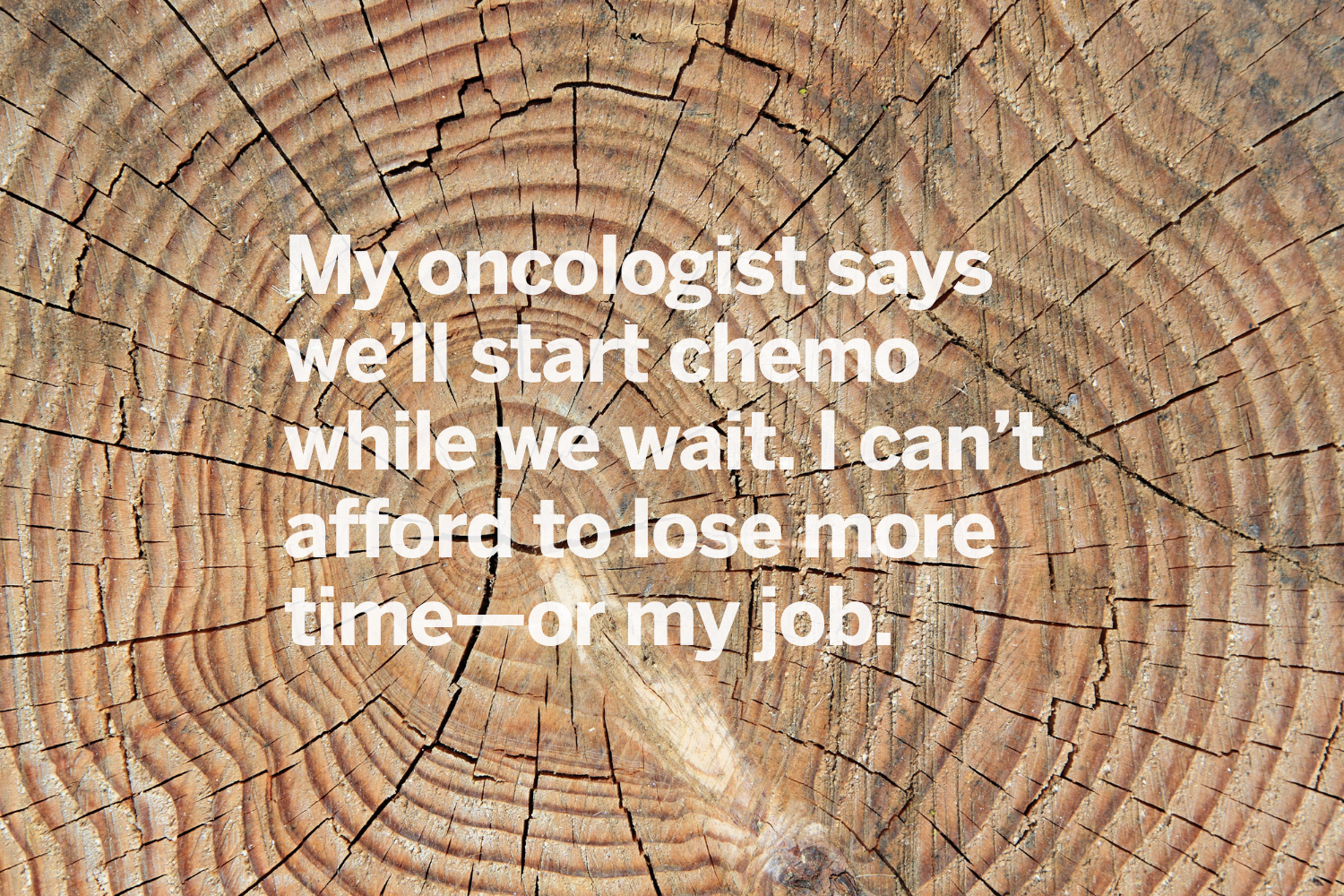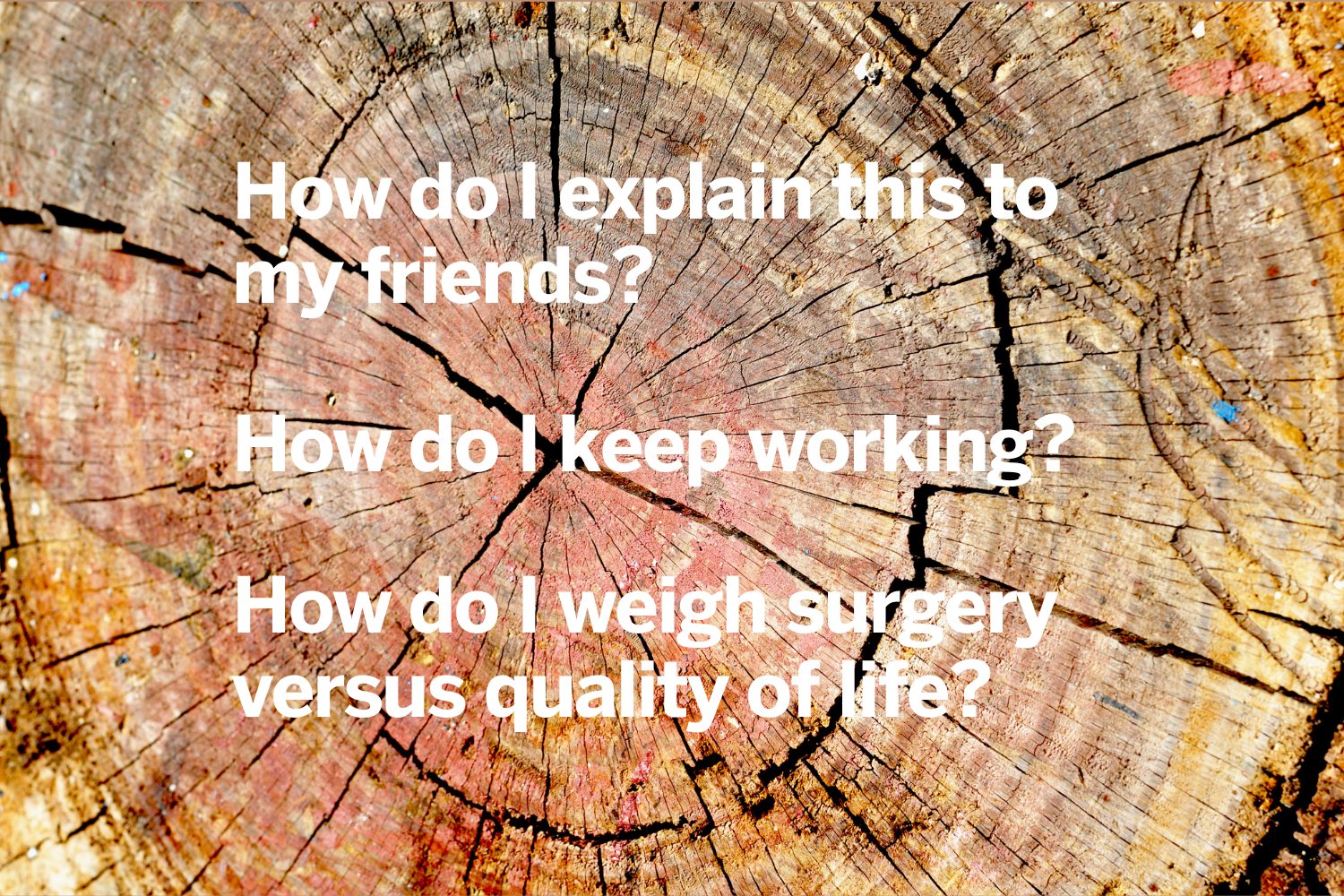I Am…22 to 89: Generations Facing Stomach Cancer Together
Stomach cancer can strike anyone, from young adults to grandparents. It's one of the few cancers that spans generations, meaning that patients and families face it with different questions, different risks, and very different lives interrupted. This November for Stomach Cancer Awareness Month, we thank our Smart Patients community for connecting people across generations and geography to share experience, information, and support.
When her 22-year-old son was diagnosed with stage 4 stomach cancer, she sat in the hospital room scrolling through message boards at 2 a.m. “Every day brings a new problem,” she posted. “He’s so young. I don’t even know what to ask the doctors.”
Hundreds of miles away, a 46-year-old patient was trying to balance work and treatment. “I’m waiting for my biomarker results,” he wrote. “My oncologist says we’ll start chemo while we wait. I can’t afford to lose more time—or my job.”
Meanwhile, an 89-year-old had just completed her tenth cycle of chemotherapy. “Guided imagery and meditation help me sleep,” she told our community. “Some days I almost forget I’m sick.”
Different ages, same determination. Their stories, threaded across the Smart Patients stomach cancer community, show how this disease reverberates across generations – reshaping what it means to fight, to hope, and to live.
A Disease That Doesn’t Discriminate by Age
Stomach cancer has long been considered a disease of older people, but that’s changing. In the United States, more and more adults under 50 are being diagnosed. Data show a rise in early-onset stomach cancer, especially in the last two decades. Younger patients often are diagnosed with more aggressive subtypes like diffuse and signet-ring cell carcinoma. For many people, diagnosis comes only after vague escalating symptoms like heartburn, fatigue, fading appetite, and vague abdominal pain.
The concerns differ by decade, but every patient faces uncertainty:
In your 20s or 30s: How do I explain this to friends? Will I be able to have children? What happens to my job or my apartment during treatment?
In your 40s and 50s: How do I keep working? What do I tell my kids? Can I afford the time off, the side effects, the travel for care?
In your 60s, 70s, and 80s: How do I weigh surgery versus quality of life? What support will I need at home? How do I keep my independence?
How Science Closes the Age Gap
At the 2025 ASCO meeting, several studies showed glimpses of what every generation in our community has been waiting for: more effective treatments that fit better with real life at any age.
MATTERHORN: This trial added durvalumab to FLOT before and after surgery, with a significant increase in disease-free survival and only a tiny increase in side effects compared to FLOT alone. The number of complete pathological responses more than doubled.
DESTINY-Gastric04: T-DXd extended survival for HER2-positive metastatic disease, offering another line of therapy for patients still working, caregiving, and planning ahead.
CT041-ST-01: The first randomized CAR-T trial in solid tumors showed meaningful gains for patients with CLDN18.2-positive gastric cancer. It's currently being explored as third line treatment - yet with time and testing, it may move up to second or even first line. This may mark the beginning of a new, potentially gentler treatment - especially for those who would have a tough time with intensive chemo.
For patients of every generation, these data are shared to offer reassurance that science is listening. As one member said, “I read new gastric-cancer studies not because I expect a miracle, but because I need to know people haven’t stopped trying.”
In that sentence lies the heart of community: Research shares the possibility, and connection shares the information and the courage to live it. Each comment, each reply, becomes part of a living record of resilience and hope.
This month, our partners at Debbie's Dream Foundation, Gastric Cancer Foundation, and Hope For Stomach Cancer are working tirelessly to raise awareness, share survivor stories, accelerate research, and advocate for a more hopeful future. Their efforts help ensure that whether you are 22 or 89, you are seen, supported, and never alone in this experience.



